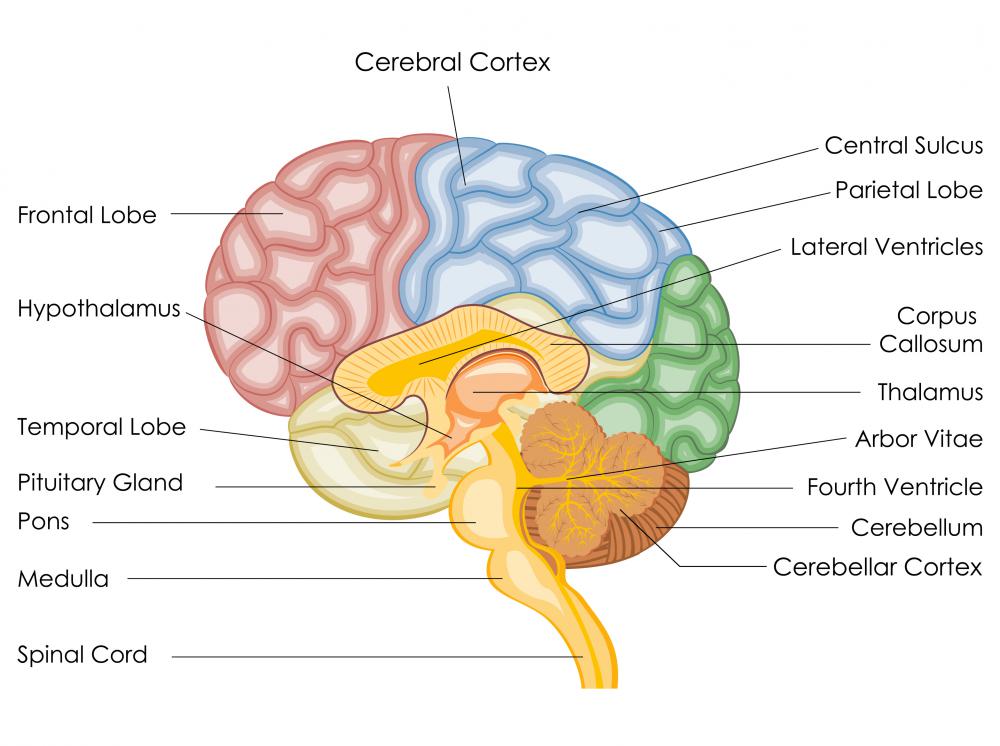At TheHealthBoard, we're committed to delivering accurate, trustworthy information. Our expert-authored content is rigorously fact-checked and sourced from credible authorities. Discover how we uphold the highest standards in providing you with reliable knowledge.
What Is Fluid Homeostasis?
Fluid homeostasis encompasses the entire mechanism of maintaining an adequate balance of fluids needed to carry on all human processes of survival. Responsible for supplying cells and tissues with continuous oxygen, energy, and water, body fluids constantly circulate to gather nutrients and move waste to be excreted. Principle fluids, blood, and lymph are transported by the circulatory system to effectively circulate these fluids to all organs of the body.
Water moves between the fluids inside and outside cells to achieve fluid homeostasis, usually moving from an area of a more diluted solution to one that is less diluted containing more concentrates. Affecting movement of the water from one area to another, the body must transport its electrolytes to accomplish fluid and electrolyte balance. This refers to the state of having the right amount of each type of fluid in all of the body's cavities and tissues.

Within the brain resides an important regulatory gland called the hypothalamus which is necessary for monitoring the concentration of blood. Sometimes the blood becomes too concentrated, meaning that it has lost liquid content while the amount of salt and other substances remains unchanged or has increased. As the blood volume or pressure falls, the hypothalamus prompts nerve cell signals to cause the person to become thirsty. Working in the reverse, the hypothalamus also stimulates hormone release from the pituitary gland to cause the kidneys to direct water back into the bloodstream in lieu of excreting it.

Kidneys react to sodium content within blood as it is transported through them while secreting substances to affect fluid homeostasis. When the body's need for water increases, excretion decreases so that thirst always comes after dehydration. Lots of water being excreted and not promptly replaced becomes life-threatening. By the time a person experiences thirst, he or she has already lost a significant amount of water and, if that person has no access to liquid, other critical signs of dehydration start to manifest.

A transparent liquid originating from blood plasma, lymph plays an essential role in fluid homeostasis. As blood comes into capillaries, it does so under high pressure so that some of the plasma is pushed out of capillaries into the surrounding tissues. Often called interstitial fluid, this clear liquid has no red blood cells or even platelets, only leukocytes. Additionally, it contains essential nutrients for survival, including glucose, oxygen, and amino acids, which surround and bathe all of the cells.
AS FEATURED ON:
AS FEATURED ON:













Discuss this Article
Post your comments